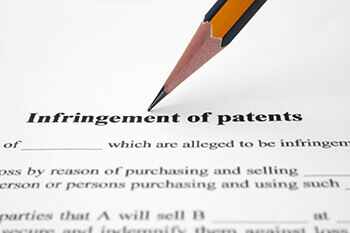Intellectual Property Law
Patent vs. Trade Secret Protection
You have invented something you wish to protect via either trade secret or patent protection. Both avenues of protection have their advantages and disadvantages. Determining which path you wish to follow relies on understanding these advantages and disadvantages.
Patents are often the most powerful source of protection for technological advances. They even protect against innocent infringers, because no proof of copying is required. However, patents last only 20 years, are only available in very specific circumstances, and the applicant must disclose the invention to the public. A well-kept trade secret, on the other hand, could theoretically last forever, but trade secret law does not prevent a competitor from reverse engineering the innovation or from independently discovering the secret.
Patents and trade secrets present opposing choices. Trade secrets derive their legal protection from their inherently secret nature. Patents, by contrast, can only be protected through public disclosure. The patent application process is lengthy and costly. Protection under trade secret is immediate and far less expensive outside the security costs necessary for keeping the information secret.
All of these factors are necessary to consider when determining whether your information should be protected as a patent or as a trade secret.

Catherine Rajwani
Principal Attorney
PHONE: 508-393-9244
EMAIL: crajwani@harborlaw.com
Catherine Rajwani is an intellectual property and business litigation attorney.
Ms. Rajwani handles a full range of intellectual property and business issues in her practice including patent, trademark, copyright, trade secret, contract and business tort disputes. She has participated in all phases of litigation, from pre-litigation counseling through trial and appeal, in federal courts throughout the country. She is also skilled in alternative dispute resolution proceedings.
Find out more about issues in our related practice areas
Intellectual Property Law
Trademark Protection
Trade Secrets
Copyrights
Patents
Intellectual Property Law
Insights, opinions and decisions you should know about

Defend Trade Secrets Act: Two Years Later
It has been more than two years since President Obama signed the Defend Trade Secrets Act (DTSA) into law, which created a federal, private, civil cause of action for trade-secret misappropriation in which “[a]n owner of a trade secret that is misappropriated may...

Where Do You Sue for Patent Infringement? – Proper Venue Post ‘TC Heartland’
In May of 2017, the Supreme Court unanimously reversed the Federal Circuit’s 25-year-old precedent on venue for corporate defendants.[1] Venue is the proper or most convenient location for trial of a case, and is governed by state and federal statutes. The 10-page...

Cost-Effective Mechanisms for Enforcing Intellectual Property Rights
In my practice, I counsel small and midsize business clients, many of which are astute with regard to securing their intellectual property rights. They have federally registered their trademarks with the U.S. Patent and Trademark Office, secured a portfolio of patents...

How Do I Defend a Patent Lawsuit?
The Top 5 Ways to Defend Your Company in Patent Infringement Litigation You discover that your company has been sued for patent infringement. After reviewing the patent cited in the complaint, you determine that the technology described relates to your company’s...
Get in touch with us.
Learn more about how we can help.